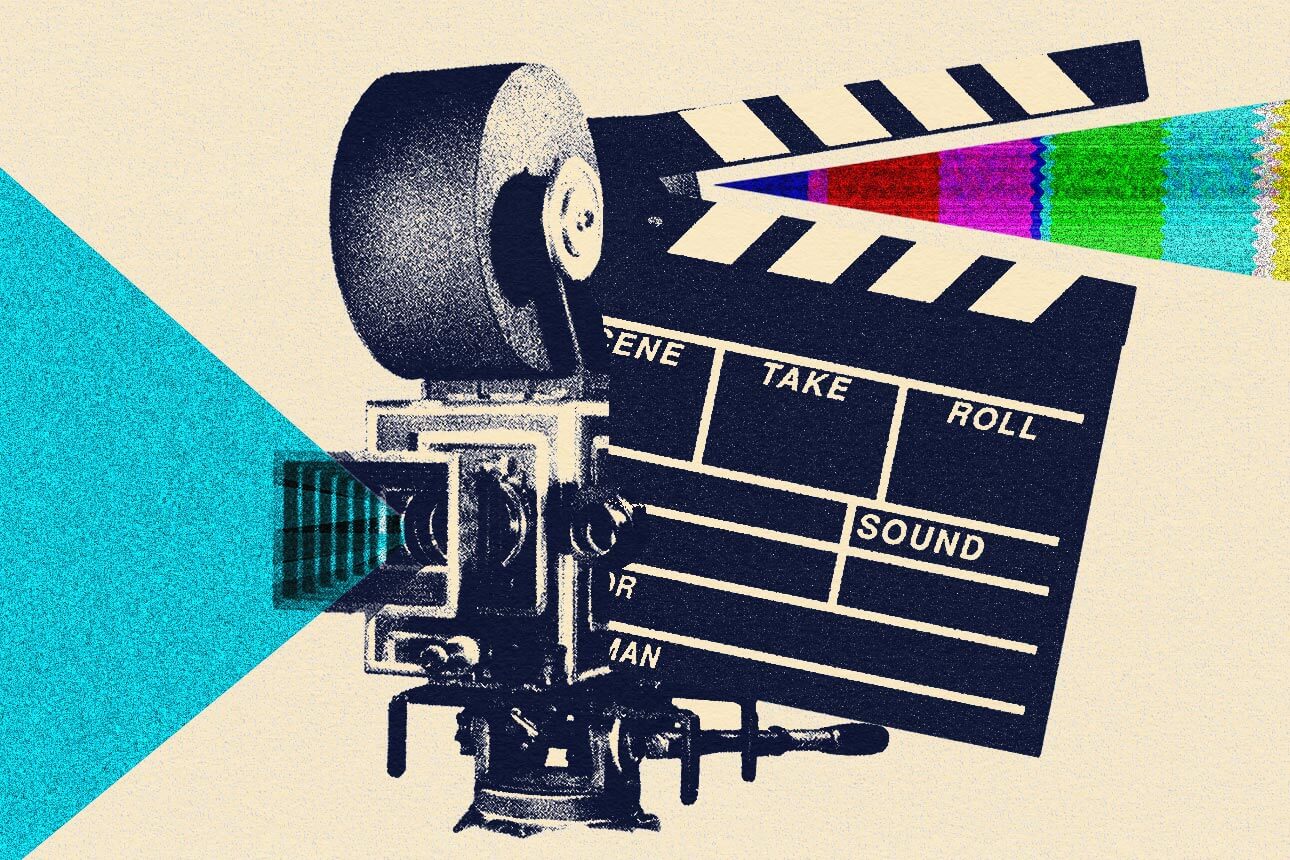The Impact of Generative AI on Hollywood and Entertainment


Topics
AI in Action

Carolyn Geason-Beissel/MIT SMR | Getty Images
One of the many topics involving generative AI that is receiving a lot of attention is its potential effects on Hollywood and the entertainment industry. It’s an obvious concern because generative AI can create the types of outputs that the industry uses — text (in the form of stories, scripts, ad copy, and reviews), marketing campaigns, and moving and static images. Segments of the industry are facing economic pressures, which increases the demand for productivity and less-expensive “product.” And a high percentage of current entertainment is derivative of past content, which makes it well suited for generative technologies that are trained on … past content.
It’s still early days for generative AI-created entertainment, but it’s clear that something big is happening. A recent Wall Street Journal article noted that widely available AI tools can suggest storylines, character arcs, and dialogue; it even includes an interactive module that lets readers see for themselves how easily ChatGPT can write a basic script when given a few prompts. The article also raises questions about image intellectual property: “If a user prompts an AI tool to build a new character influenced by say, SpongeBob, should the original creators have to grant permission? Who owns it? Can the new work itself be copyrighted?”
Get Updates on Leading With AI and Data
Get monthly insights on how artificial intelligence impacts your organization and what it means for your company and customers.
Please enter a valid email address
Thank you for signing up
Generative AI was used in making the 2022 film Everything Everywhere All at Once, and we know how that turned out. Tom recently wrote about the use of generative AI to create movie and TV backdrop images. There are already generative AI systems that can create videos, although they are short and relatively primitive. AI is being used to provide data-driven predictions about how unusual storylines will land with viewers.
So, what does this mean for the industry? There are many different components to this question, as a new report from Variety Intelligence Platform suggests. In May, the Writers Guild of America (WGA) went on strike, primarily over film and TV writers’ income from streaming services programming, but it also demanded that production companies “regulate use of material produced using artificial intelligence or similar technologies.” Because there are so many uncertainties about what will happen when and how with the technology, we spoke with two experts on the topic. Both are based in — not surprisingly — Los Angeles, and both are involved with centers at the University of Southern California (USC). However, they don’t work together, and they have very different approaches to the technology.
Resolutely Against Generative AI
Jonathan Taplin is director emeritus at the Annenberg Innovation Lab at USC. He’s had a long career in the entertainment industry and was previously a tour manager for musicians, including Bob Dylan and The Band. In addition, he’s been a film producer, a banker, and a writer. His latest book, The End of Reality: How Four Billionaires Are Selling a Fantasy Future of the Metaverse, Mars, and Crypto, will be released in September. As you might infer from the title, he’s not a fan of how big tech firms’ generative AI tools are being developed or promulgated.
“The way they train their models is by ingesting everything on the internet, with no concern for copyright,” Taplin told us. “Google has a music-generation AI trained on every audio file on YouTube. You can issue a prompt like ‘Write me a song that sounds like Taylor Swift, sad ending, up-tempo,’ and the resulting song sounds somewhat like her. Someone could include it in a video game or a bar scene in a movie for free.” Generative AI could do the same kind of repurposing with video content owned by the studios, he added.
Taplin’s primary concern is that generative AI will replace some of the work done by human writers, artists, photographers, and other creative professionals in the arts and entertainment industry. He also believes that it will exacerbate problems that are already bringing the film and TV industry down. “The biggest problem in the movies is too many formulas. There is a lack of originality, and that’s why the industry isn’t performing,” he said. Generative AI, he added, is only capable of producing even more formulaic content and will make the predictability worse. “Entertainment relies on new ideas, and this technology can’t produce them,” Taplin added.
He said he’s concerned that generative AI will continue to reduce the number of performers who can make a living in their fields. The majority of entertainment revenue already goes to a very small percentage of artists. This is the reality for musicians, especially on streaming services, and is echoed in Hollywood in the huge box office revenues generated by a handful of leading actors in blockbuster films. When you get an “algorithmic economy,” Taplin said, “the algorithms narrow the funnel, with outsize paychecks for a few.” He’s hopeful that a collective licensing regime — similar to what’s in place for music sampling — will emerge to protect artists when their content is used to train generative AI.
Embracing Generative AI, With Some Concerns
Yves Bergquist is director of the AI & Neuroscience in Media Project at USC’s Entertainment Technology Center, which is funded by Hollywood studios. You can guess that his opinion of generative AI is probably much more favorable than Taplin’s. It is, although he said he does have some concerns about AI’s potential effects on the media and entertainment industry: “It’s a completely revolutionary technology” characterized by misinformation and “some insanity.”
We asked Bergquist whether movie studios would embrace generative AI. Parts of them are already doing so, he said. “Some groups within the studios are highly technologically savvy, such as the chief technology officers and all of the visual effects artists and technicians. They are very sophisticated and are already working with generative AI companies. The studios do a lot of the postproduction work in films — particularly in animation — and there is a lot of pressure to bring costs down. The postproduction companies have a software development culture, so they will embrace generative AI.”
He also believes that many production companies will embrace the technology because they are already shooting on large LED-based screens and will need generative images for them. Bergquist said he expects that tools offering virtual actors and voice synthesis will be most aggressively adopted by short-form creators who distribute their work on TikTok or YouTube and by video game producers. “Streaming channels, digital ads, games — that’s what kids watch these days,” he noted. “The media industry no longer has a monopoly on entertainment.” Makers of hardware (such as cameras) are experimenting with generative in-camera visual effects as well.
“The postproduction companies have a software development culture, so they will embrace generative AI.”
The business side of traditional movie studios is sometimes more reluctant to embrace AI, Bergquist observed, simply because they don’t have the same kind of culture of data or software. “It’s being bolted onto organizations and people who aren’t ready,” he said. Even the new streaming studios, like Netflix and Prime Video, have experienced a lot of growing pains in their AI journeys.
Bergquist said that before the WGA strike started in May, many screenwriters told him that they view the likes of ChatGPT as a “great creative assistant tool” but not something that will replace human writers. “It’s good at brainstorming ideas, but it will output only average content,” Bergquist asserted. “It’s nowhere near capable of the symbolic abstraction necessary for script development, and it can’t output a script with narrative structure and character arcs.” At least not now. Future language models with higher levels of intelligence and new paradigms for AI might be able to do so.
Bergquist thinks generative AI will have enormous effects not only on entertainment but also on education. He believes that schools, including the School of Cinematic Arts at USC, need to quickly ramp up their teaching to keep pace with the frenzy of new generative AI tools that are released nearly every week. Bergquist is preparing courses himself on the technology for the Society of Motion Pictures and Television Engineers, an organization that represents technologists in media.
Are Both Experts Right?
Although Taplin and Bergquist seem to have very different views on generative AI, they might both be right about its impacts. Economic pressures may entice the industry — at least some sectors of it — to embrace these new tools. Generative AI will lead to dramatic changes in production and postproduction, distribution, and intellectual property ownership. The technology may not be good for traditional artists and the companies that employ them, but it is likely to lead to significant changes in the industry over the next few years — hopefully some for the better along with some for the worse. Perhaps the only purely good news is that neither expert expects that humans will be entirely replaced anytime soon.
